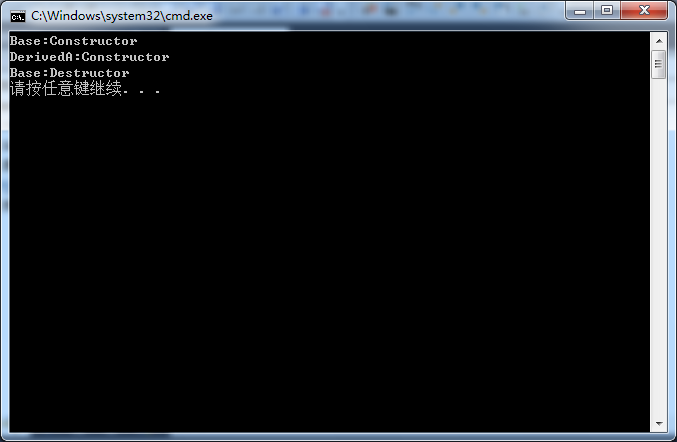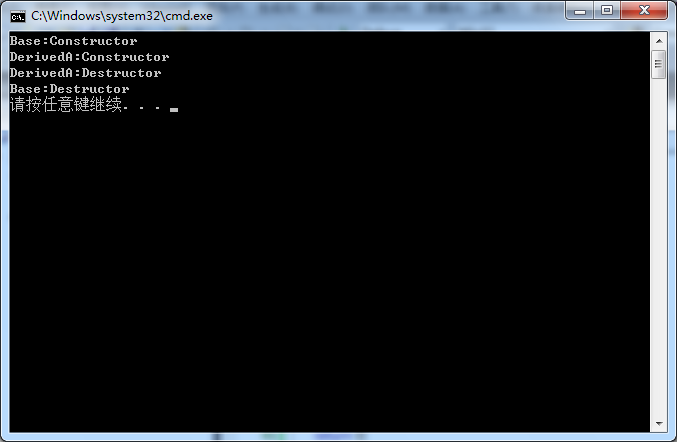对于一个单一的类来说,析构函数是不是虚函数,其没有实质性的意义。但是当当前类作为基类的时候,基类的析构函数是不是虚函数则会对程序带来不同程度的影响。
看下下面的代码运行结果:
#include<iostream>
using namespace std;
class Base
{
public:
Base()
{
cout << "Base:Constructor" <<endl;
}
~Base()
{
cout << "Base:Destructor" << endl;
}
};
class DerivedA:public Base
{
public:
DerivedA()
{
cout << "DerivedA:Constructor" <<endl;
}
~DerivedA()
{
cout << "DerivedA:Destructor" << endl;
}
};
class DerivedB:public DerivedA
{
public:
DerivedB()
{
cout << "DerivedB:Constructor" <<endl;
}
~DerivedB()
{
cout << "DerivedB:Destructor" <<endl;
}
};
int main()
{
Base* tmp = new DerivedA();
delete tmp;
return 0;
}
运行结果大家估计看的出来,当析构函数为非虚函数时,delete tmp的时候,只去调用了基类的析构函数,并没有调用派生类的析构函数。
下面基类的析构函数使用需虚析构试试看结果如何:
#include<iostream>
using namespace std;
class Base
{
public:
Base()
{
cout << "Base:Constructor" <<endl;
}
virtual ~Base()
{
cout << "Base:Destructor" << endl;
}
};
class DerivedA:public Base
{
public:
DerivedA()
{
cout << "DerivedA:Constructor" <<endl;
}
~DerivedA()
{
cout << "DerivedA:Destructor" << endl;
}
};
class DerivedB:public DerivedA
{
public:
DerivedB()
{
cout << "DerivedB:Constructor" <<endl;
}
~DerivedB()
{
cout << "DerivedB:Destructor" <<endl;
}
};
int main()
{
Base* tmp = new DerivedA();
delete tmp;
return 0;
}运行结果为:

这个时候,函数调用delete tmp的时候,先调用了派生类的析构函数,然后调用了基类的析构函数。
通常情况下,一个类的析构函数中,总是去处理一些需要释放内存资源的工作,而当析构函数没有被正确调用的时候,那么可能会造成本该释放的内存在程序结束的时候不被释放,从而造成内存的泄露。当数据量大的时候可能会造成很大的损失。并且对于一个C++程序员,时刻保证程序不出现内存泄露,使我们必须时刻注意的问题。
综上所述,当我们需要把当前类作为基类使用的时候,我们必须注意析构函数虚化的处理。当然当不做基类的时候,我们可以不去设置虚析构。






















 2068
2068

 被折叠的 条评论
为什么被折叠?
被折叠的 条评论
为什么被折叠?








